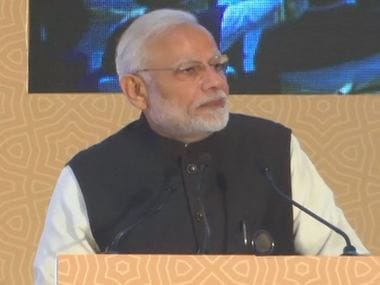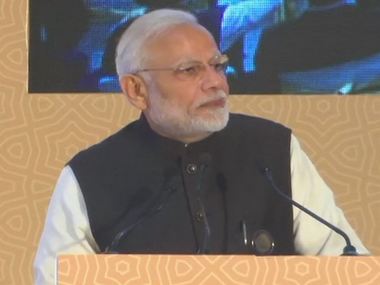It is typical for governments, particularly in an election year, to shift the gear to populist policies and public-appeasing stunts at the cost of good economics. Hence, one of the key demands the Narendra Modi-government recently made to the Reserve Bank of India (RBI) board—- to loosen the central bank’s grip on close to a dozen state-run banks under the prompt corrective action (PCA) framework— doesn’t look very surprising. The government wants to boost the credit flow to micro, small and medium enterprises, or MSMEs and give a leg-up to the struggling sector that will also work in its favor when it seeks fresh public mandate next year. Under the current circumstances, when 11 of the 21 state-run banks are under restricted business and NBFCs are facing a liquidity crunch, this isn’t possible. Hence, the only solution is to free-up a maximum number of banks from the PCA framework so that they can start lending to all sorts of companies yet again. The idea makes sense politically but is a dangerous thing to do amid the ongoing NPA clean-up process. The RBI board has given in to this somewhat by agreeing to set up a committee to examine this proposal. If the RBI is forced to do so, this proposal can undo a lot of the gains of the NPA clean-up process the central bank has undertaken since 2015 and even jeopardise it. Let’s examine how. [caption id=“attachment_5494691” align=“alignleft” width=“380”]  File photo of Prime Minister Narendra Modi. Reuters[/caption] To begin with, these banks have been put under the PCA for a reason. Their capital adequacy (one of the key metrics to assess the health of a bank) has fallen below the minimum threshold and the share of bad loans has shot through the roof. This has happened due to various reasons including inefficient operations, particularly in judging the repayment ability of the corporate borrower, unable to raise capital from the market on their own and the lack of autonomy in functioning as independent business entities. A lion share of these banks’ business hours are dedicated to the implementation of various government schemes, the failure of which would cost them dearly since they are fully dependent on government money for survival. The RBI tracks three key indicators – capital, asset quality and profitability. These are CRAR/Common Equity Tier I ratio, Net NPA ratio and Return on Assets respectively. Additionally, the leverage would be monitored as part of the PCA framework and breach of any risk thresholds. When can PCA be invoked? The RBI has listed three scenarios that would result in invocation of PCA. Including the capital conservation buffer, banks need to have at least 7.75 percent capital adequacy not to fall into the PCA bracket, according to risk threshold 1. Also, the Common Equity Tier 1 (CET 1min) plus the applicable capital conservation buffer needs to be at least 5.125 percent. The net NPA ratio needs to be less than 9 percent. The bank falls into risk threshold 2 if the capital adequacy plus buffer falls below 7.75 percent, Tier 1 equity below 5.125 percent and NPA greater than 9 percent but less than 12 percent. Finally, risk threshold 3 comes into play if capital adequacy is below 3.625 percent and net NPAs shoot up beyond 12 percent.
| Banks under prompt corrective actions (PCA) norms |
|---|
| Bank |
| Allahabad Bank |
| Bank of India |
| Bank of Maharashtra |
| Central Bank of India |
| Corporation Bank |
| Dena Bank |
| IDBI Bank |
| Indian Overseas Bank |
| Oriental Bank of Commerce |
| UCO Bank |
| United Bank of India |
| *annualised; as on 30 September 2018; data source: CapitalinePlus |
With respective to profitability, banks fall into risk1 threshold if its return on assets (RoA) turns negative for two consecutive years, into risk2 threshold if RoA turns negative for three consecutive years and risk3 threshold if RoA turns negative for four consecutive years. If a bank is in risk1 threshold, there will be a restriction on dividend distribution and remittance of profits; in risk2 threshold, there will be a restriction on branch expansion and higher provisions; and in risk threshold 3, restriction on management compensation and directors’ fees. More critically, the RBI recommends any bank that falls into risk threshold 3 (tier 1 equity) as a likely candidate for mergers or winding up process. An analysis in the Mint newspaper quotes brokerage firm Jefferies India which reveals that four banks have already breached the third threshold under various parameters based on data from latest September quarter results. Also, six banks which are currently not under the PCA might fall into that category on account of capital erosion, the report said. If that happens, at least 17 out of the 21 state-run banks will be under PCA and, needless to say, under lending restrictions. This will mean significant stagnation in credit flow particularly to small firms with lower ratings which can put the government in a difficult situation politically in an election year. This is probably the reason the government has kicked off a big fight with the central bank to ease the PCA restrictions deploying its sentinels at the RBI board. But,
Just imagine a scenario if these banks are forcefully taken out of the PCA framework by the government by directing the RBI to water down the laid out norms. Once again, these entities with insufficient capital and neck-deep in NPAs will start high-risk lending to all sorts of companies which will serve the government well before elections but will prepare a disastrous recipe for the banking sector eventually triggering a crisis situation.
The problem will only worsen then. The NPA levels will spike further as there is no change in the ground-level economic situation. Also, for these banks to resume lending, the government will have to infuse large amounts of capital in these entities which will be near impossible for a fiscal-constrained government. Addressing such a full-blown NPA crisis will be far more difficult to handle compared to what it is today. The better way would be to let the RBI complete its NPA clean-up using all the tools at its disposal including the PCA (not the watered down version), even if it means shrinking the credit offtake in the system in the near-term. (Data contribution by Kishor Kadam)


)

)
)
)
)
)
)
)
)



